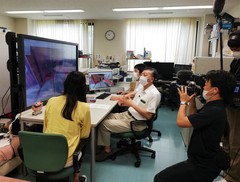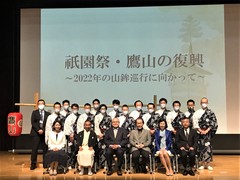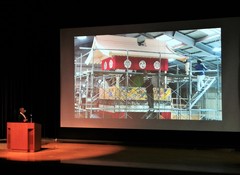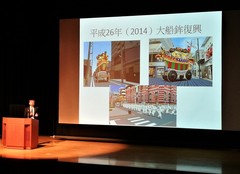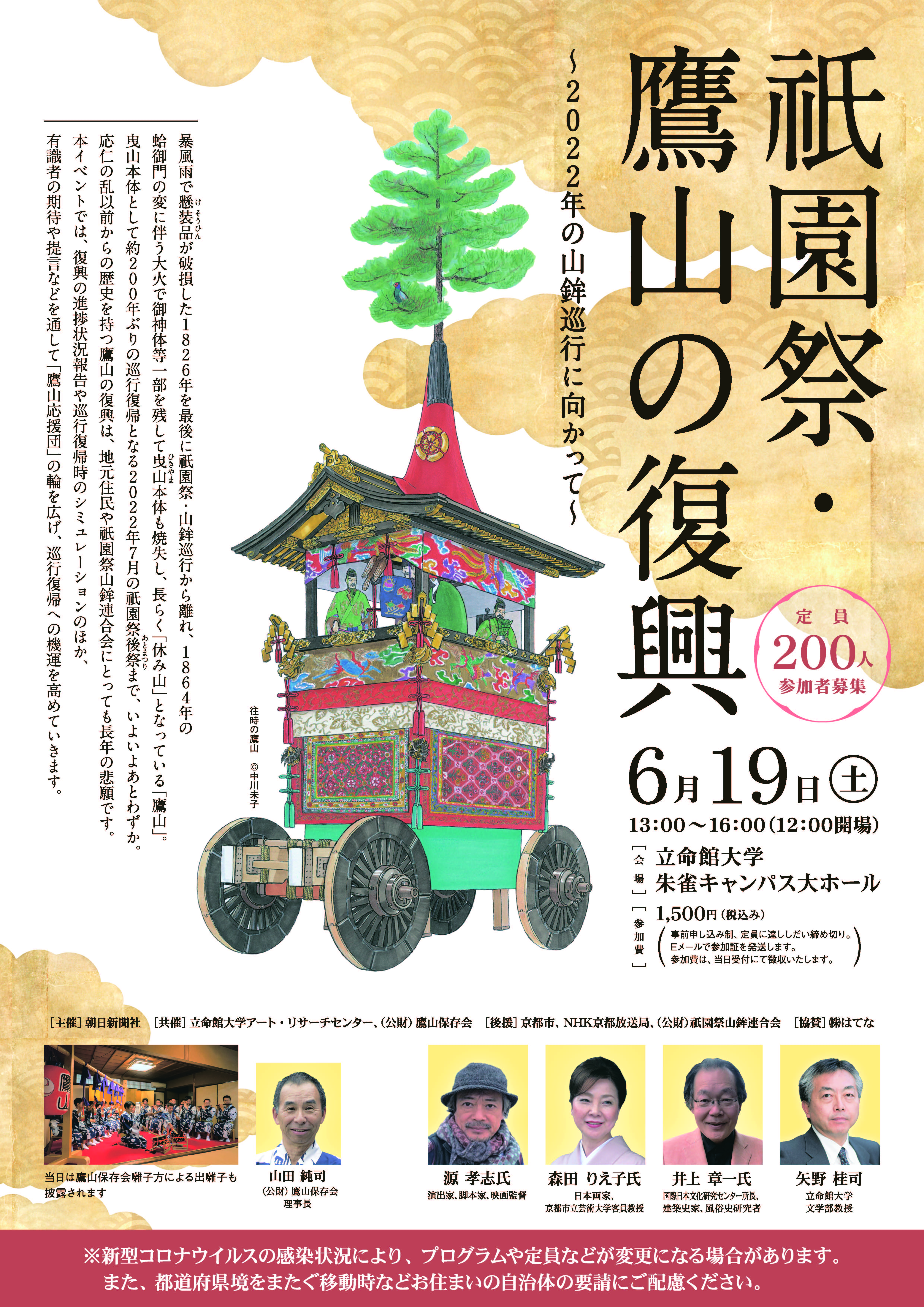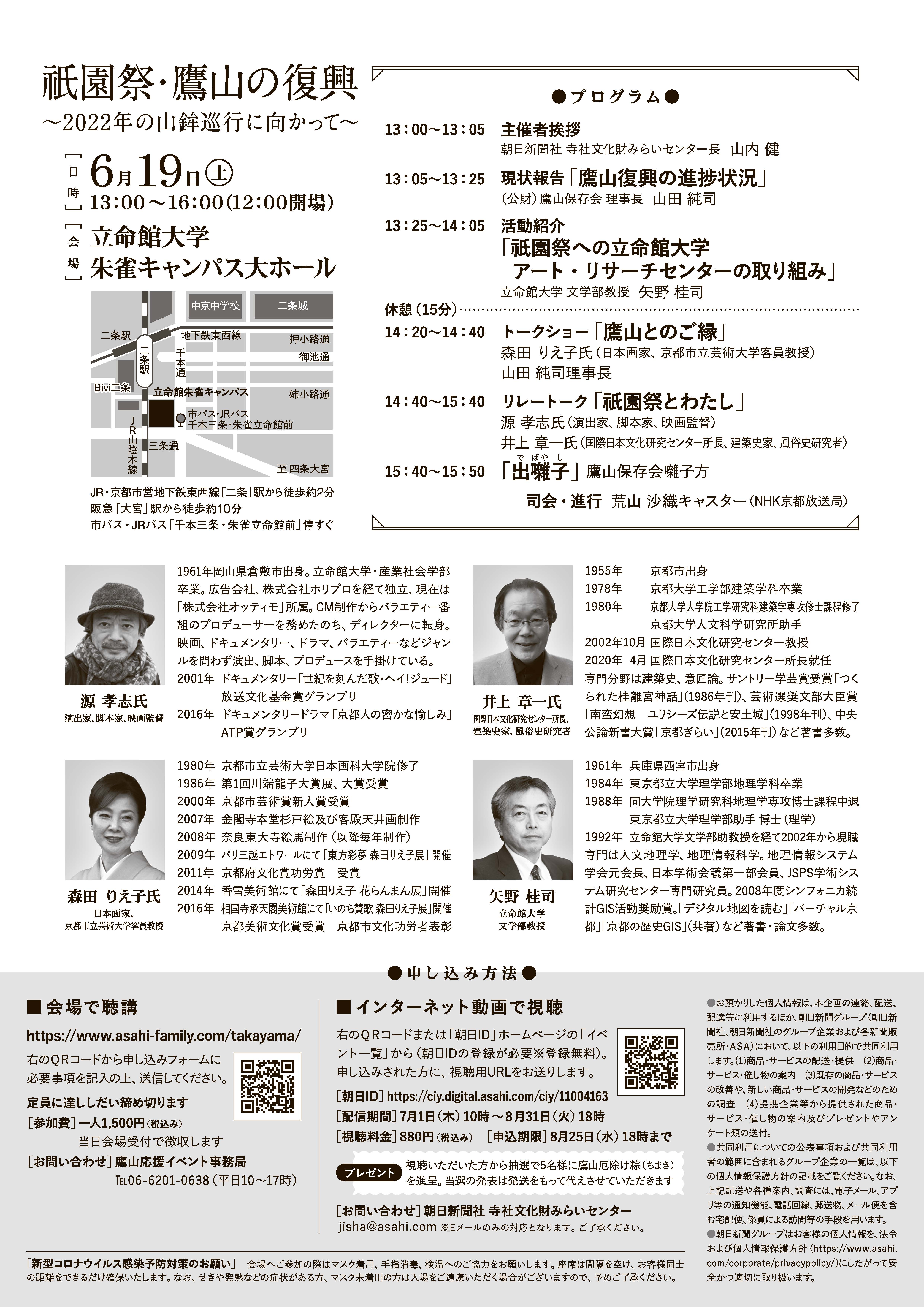-
 18
19
20
21
22
23
24
25
26
27
28
18
19
20
21
22
23
24
25
26
27
28

Day 1: July 30, 2021 (Friday) 13:00-17:05
Day 2: July 31, 2021 (Saturday) 10:00-16:40 (tentative)
Venue: Online (ZOOM, YouTube)
If you would like to participate via ZOOM, please contact our secretariat and we will provide you with the URL after registration.
Art Research Center Secretariat: arc-jimu@arc.ritsumei.ac.jpTo watch ARC Days 2021 on YouTube, please click here.
Organizer: International Joint Digital Archiving Center for Japanese Art and Culture (ARC-iJAC), Art Research Center, Ritsumeikan University and Program for Supporting Research Center Formation, Ritsumeikan University
Read more>>立命館大学アート・リサーチセンターでは、文部科学省国際共同利用共同研究拠点の研究支援活動の一環として、下記の通りARC古典籍ポータル・データ・ベース、ならびに翻刻システムを使った古文献の解読講習会・錬成講座、ならびにくずし字文献プロジェクトの支援を実施しております。
好評により、この度、第2回目の講習会を実施する運びとなりました。前回、残念ながら抽選に漏れた方はこの機会に是非ご参加ください。
この講習は前期・後期にわけ、前期は翻刻の基礎知識とシステム利用方法に重点をおいた講習を実施し、前期だけである程度読めるようにすることを目標としています。(今回は前期の再募集となります)
後期は、初級・中級レベルの方々が、自分が翻刻したい作品を選んで翻刻していきます。翻刻した本文は、翻刻システムを通じて、熟練のサポーターが添削・指導します。
また、特定のテーマを持った研究プロジェクトとして翻刻を進められる場合も、使用方法を説明の上、システムを利用してもらえます。いずれも参加費無料です。
■参加登録
参加希望の方は次のフォームから7月20日までにお申し込みください。
募集は終了しました
Read more>>[イベント情報]July 14, 2021(Wed)Co-hosted with the Japan Art Documentation Society (JADS), the 89th International ARC Seminar will be held on Wednesday, July 14, starting at 18:00 JST.
The program is as follows:
Title: The History and Future of the Society of Photographic Techniques for Cultural Properties
Speaker: Tadao INOUE (President, Society of Photographic Techniques for Cultural Properties)
- - - - - - - - - - - - - - - - - - - - - - - - - - - - - - - - - - - - - - - - - - - - - - - - - - - - - - - - - - - - - - - - -
Date: Wednesday, July 14, 2021 18:00 - 19:30 JST
Participation: online via Zoom, free of charge (no reservation required)
*This Webinar is open to everyone, and non-ARC members are also invited to participate via YouTube.
[イベント情報]July 13, 2021(Tue)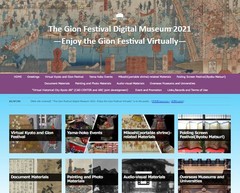 In cooperation with the College of Letters, the International Joint Digital Archiving Center for Japanese Art and Culture (ARC-iJAC), Art Research Center, Ritsumeikan University is delighted to announce the launch of the Gion Festival Digital Museum 2021--Enjoy the Gion Festival Virtually--.
In cooperation with the College of Letters, the International Joint Digital Archiving Center for Japanese Art and Culture (ARC-iJAC), Art Research Center, Ritsumeikan University is delighted to announce the launch of the Gion Festival Digital Museum 2021--Enjoy the Gion Festival Virtually--.The site is a renewal of the Gion Festival Digital Museum 2020 ~The Past, Present, and Future of the Gion Festival~ which was released last year.
This year, the Gion Festival has unfortunately been affected again by the global pandemic, leading to the cancellation of many events, including the Yama-hoko Junko.
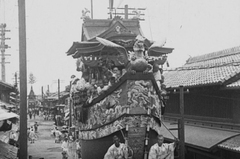
In response to this, we have launched the Gion Festival Digital Museum 2021 where visitors can experience the charm and history of the Gion Festival online.
<<Gion Festival Digital Museum 2021>>
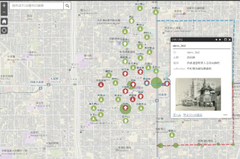
Highlights of the new contents:
1. 2D and 3D maps of virtual Kyoto by ArcGIS Online
2. High-resolution images of hanging scrolls, Gion bayashi, and virtual festival parades
3. App Virtual Historical City Kyoto AR (iOS and Android)
TV coverage:
An interview with Prof. Keiji Yano (ARC Deputy Director) on the Gion Festival Digital Museum 2021 has been broadcasted by NHK Kyoto ニュース630京いちにち on July 16 (Fri), 2021.
→ Watch the video below.
The ARC is dedicated to research, analyze, record, organize, preserve and disseminate the tangibles and intangibles of Japanese cultural heritage. By digital archiving traditional events such as the Gion Festival and making them available to the broad public, the center strives to retain their significance for future generations.
[イベント情報]July 9, 2021(Fri)Tanabata 2021 is one of the largest cultural exchange events between Cambodia and Japan and will be held online from July 9 (Fri) to July 11 (Sun).
As part of this event, the video of the Japan Foundation "An Evening of Noh and Kyogen 2020"--produced in collaboration with the Art Research Center--will be screened. We warmly invite you to watch this video.
The event has attracted more than 6,000 people in the past, and has introduced Japanese culture from various angles through stage performances and traditional Japanese music.
Due to the spread of Covid-19, the program has been changed to an online format.
Dates: July 9-11
Organizers: Japan Foundation Asia Center Phnom Penh, Embassy of Japan in Cambodia, CJCC (Cambodia-Japan Cooperation Center)
<Related websites>
Facebook event page
Japan Foundation Asia Center, Phnom Penh[イベント情報]July 7, 2021(Wed)Co-hosted with the Ritsumeikan Center for Game Studies (RCGS), the 88th International ARC Seminar will be held on Wednesday, July 7, starting at 18:00 JST.
The program is as follows:
Title: Video Game Preservation and Exhibition During COVID-19 at The Strong National Museum of Play
Speaker: Jon-Paul DYSON (Vice President for Exhibits and Director of the International Center for the History of Electronic Games, The Strong National Museum of Play)
- - - - - - - - - - - - - - - - - - - - - - - - - - - - - - - - - - - - - - - - - - - - - - - - - - - - - - - - - - - - - - - - -
Date: Wednesday, July 7, 2021 18:00 - 19:30 JST
Participation: online via Zoom, free of charge (no reservation required)
*This Webinar is open to everyone, and non-ARC members are also invited to participate via YouTube.
[イベント情報]July 1, 2021(Thu)In anticipation of the return of the Takayama float to the Gion Festival in 2022, a symposium was held by Asahi Shimbun, co-organized by the Art Research Center (ARC), Ritsumeikan University, on June 19, 2021.
The Takayama float boasts a long history of participating in the Yamahoko Junko parade that dates back to the 15th century. However, the float has been absent from the festival since 1826, having suffered from heavy damages caused by natural disasters.
As a result of the continued dedication and determination of the Takayama Preservation Association to revive the Takayama float, the long-cherished wish of the townspeople for the float to return to the Yamahoko Junko after nearly 200 years will finally come true.
The Symposium
At the beginning of the symposium, Mr. Junji Yamada, Head of the Takayama Preservation Association, gave an overview of the reconstruction progress of the float and expressed his joy that it is due to be completed four years earlier than expected.
Then, Prof. Keiji Yano, Deputy Director of the ARC, introduced the center's various activities concerning the digital archiving of the Gion Festival and the Takayama float (→ Gion Festival Digital Museum 2020 and 2021).
He presented CG animation of the rebuilt Takayama float, 2D and 3D maps of festival routes, old videos and photographs from the early Showa era, and 3D see-through visualization models of the festival floats, amongst others.
"As we did last year, the Art Research Center will be making its research results available to the public again from July this year through the Gion Festival Digital Museum 2021, so please look forward to it," expressed Prof. Yano.
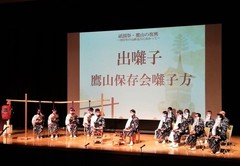
Other distinguished guest speakers included Prof. Shoichi Inoue, Director of the International Research Center for Japanese Studies; Mr. Takashi Minamoto, film director and screenwriter; and Ms. Rieko Morita, Nihonga painter and Affiliate Professor at the Kyoto City University of Arts, with each of them sharing stories about his/her connection with the Gion Festival and the Takayama float.
Concluding the symposium, the hayashikata (Gion Festival musicians) of the Takayama Preservation Association performed ohayashi specific to the float.
Anticipation
"Ever since I was a kid, I have seen the festival floats passing by, accompanied by the creaking of wheels while I stood on the roadside listening to the ohayashi," Mr. Yamada reminisced. "None of us has ever experienced playing the ohayashi on the Takayama float during the festival, so we are all more than excited."
*A full video of the event is available online from July 1 - August 31, 2021 (in Japanese). To watch the video, please register via the following link: https://ciy.digital.asahi.com/ciy/11004163.
[イベント情報]June 30, 2021(Wed)Co-hosted with the Ritsumeikan Center for Game Studies (RCGS), the 87th International ARC Seminar will be held on Wednesday, June 30, starting at 18:00 JST.
The program is as follows:
1. Description of Game Resources Using Linked Data (Linked Dataによるゲーム資料の記述)
Speaker: Kazufumi FUKADA (Lecturer, Department of Digital Entertainment, International Professional University of Technology in Osaka)
2. The Essential Problem for the Archiving of "Game Music" (「 ゲーム音楽」の保存にむけての諸問題 )
Speaker: Takashi OBANA (Associate Professor, Department of Digital Entertainment, International Professional University of Technology in Osaka)
- - - - - - - - - - - - - - - - - - - - - - - - - - - - - - - - - - - - - - - - - - - - - - - - - - - - - - - - - - - - - - - - -
Date: Wednesday, June 30, 2021 18:00 - 19:30 JST
Participation: online, free of charge (no reservation required)
*Please note that only the first part of this webinar will be broadcasted via YouTube.
The International Joint Digital Archiving Center for Japanese Art and Culture (ARC-iJAC), Art Research Center, Ritsumeikan University, will be co-hosting the 2021 Annual Conference of the Japan Art Documentation Society (JADS) on June 19 (Sat) and 20 (Sun), 2021.
You are cordially invited to join us.
■ Date:
June 19 (Sat) 13:00 - 17:00
June 20 (Sun) 10:00 - 16:15
■ Participation method:
The conference will be held online.
*Please note that the conference will not be held on the Kinugasa Campus of Ritsumeikan University.
*Details regarding the online access to the conference and the conference proceedings (PDF) will be informed separately.
*Any change in the outline of the conference will be announced via the conference mailing list (ML). If you have not yet registered for the ML, please do so.
■ Participation fee:
Free of charge for both JADS members and non-members.
*A paper version of the proceedings will not be published this year. Please print out the PDF file of the proceedings if required.
■ Registration:
Please register via our application form.
*Upon registration, an automatic email will be sent to you with details to access the conference and the proceedings.
Application deadline: June 18 (Fri), 2021
*This conference is open to both members and non-members, except for the general meeting on the second day.
Organized by: Japan Art Documentation Society (JADS) and the MEXT International Joint Usage / Research Center International Joint Digital Archiving Center for Japanese Art and Culture (ARC-iJAC), Art Research Center, Ritsumeikan University
Supported by: 記録管理学会 、情報処理学会人文科学とコンピュータ研究会、情報知識学会、人文系データベース協議会、全国大学史資料協議会、全国美術館会議、全国歴史資料保存利用機関連絡協議会、専門図書館協議会、デジタルアーカイブ学会、日本アーカイブズ学会、日本アートマネジメント学会、日本デジタル・ヒューマニティーズ学会、日本ミュージアム・マネージメント学会
For inquiries, please contact:
Organizing Committee for the 2021 Annual Conference of the Japan Art Documentation Society
Read more>>
jads_conf2021■googlegroups.com (Please change "■" to "@")[イベント情報]June 19, 2021(Sat)Due to the extension of the state of emergency declared by Kyoto Prefecture, we regret to inform that this event has been changed to a non-audience event. The event will be recorded and the video distributed as scheduled from July 1 (Thurs) to August 31 (Tues). Please refer to the registration details below to apply for watching the event video online.
Those who have already applied for the on-site event will be contacted individually.
The Gion Festival in Kyoto, designated as an Intangible Cultural Heritage by the UNESCO, is one of the most important Japanese festivals.
A highlight of the festival is the magnificent parade of decorated floats known as the Yamahoko Junkō.
Amongst these, the Taka-yama float boasts a long history of participating in the parade that dates back to the 15th century.
However, the float has been absent from the festival since 1826, when a great storm damaged its decorations. The situation was further worsened by a fire that destroyed most parts of the float in 1864.
In recent years, there has been a movement to revive the Taka-yama float - a long-cherished wish of the townspeople.
Finally, the Taka-yama float is due to return to the Gion Festival in July 2022 for the first time in 200 years.
Besides reporting on the progress of its reconstruction and showcasing its return in a virtual Yamohoko parade, this event also intends to expand the circle of Takayama supporters and raise the momentum for its long-anticipated return to the Gion Festival.
*The event will be held in Japanese.
Date: June 19 (Saturday), 2021 13:00 - 16:00 (entry from 12:00)
Organizer: The Asahi Shimbun
Co-organizers: Art Research Center (ARC), Ritsumeikan University, Taka-yama Preservation Association
Supported by: Kyoto City, NHK Kyoto Broadcasting Station, Gion Festival Yamahoko Association
Sponsored by: Hatena Co., Ltd
Registration
1. Attend the event at the venue → The event has been changed to a non-audience event.
For inquiries, please contact: 06-6201-0638 (weekdays 10am-5pm)
https://www.asahi-family.com/takayama
2. Watch the event video online (available from July 1 - August 31, 2021)
Please register by scanning the QR code on the flyer or go to the events section on the 朝日 ID-website.
Read more>> 18
19
20
21
22
23
24
25
26
27
28
18
19
20
21
22
23
24
25
26
27
28



